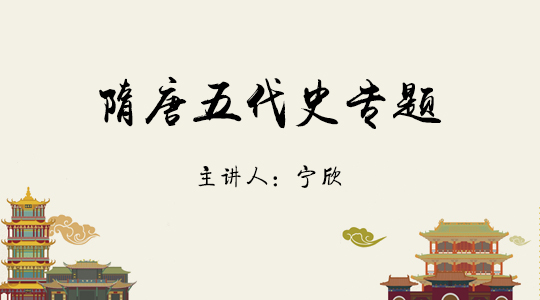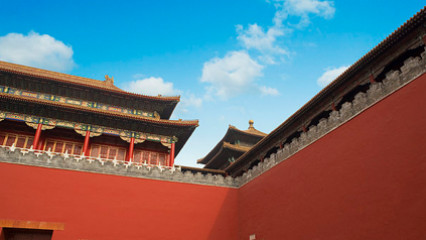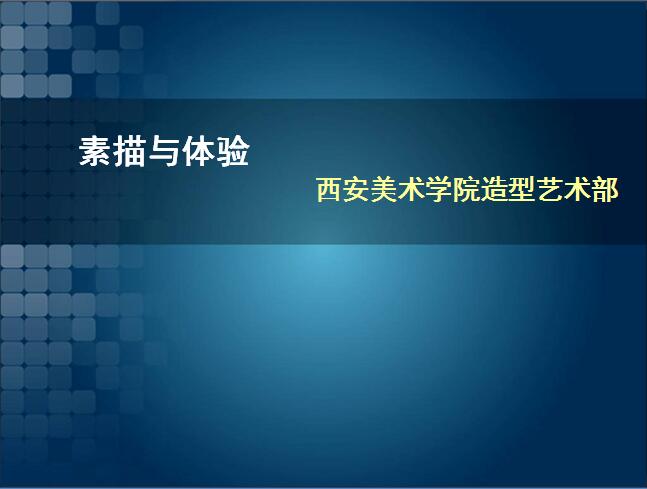
当前课程知识点:Hospitality English > 1 THE NATURE OF TOURISM BUSINESS > 1.1 Hospitality and Tourism > 1.1.4 Basic conception of tourism (1)
返回《Hospitality English》慕课在线视频课程列表
In this video, you will learn the supply components of tourism and sustainable development of tourism with the environmental planning approach and community-based tourism. Can you elaborate the supply components of tourism? Please demonstrate your understanding of sustainable tourism in your essay or oral presentation.
返回《Hospitality English》慕课在线视频列表
欢迎来到我们的课程
让我们开始学习 旅游的基本概念
在这部分
我们将谈论旅游的供给部分
旅游业的可持续发展 生态旅游和市场细分
旅游供给包括很多种类
在这里我们列出了五类
自然资源和环境 建筑环境
交通 接待与文化资源以及体制因素
自然资源和环境
这一类是衡量旅游供给的基本标准
任何地区可供游客使用和享受的自然资源
其中的主要部分包括空气和气候 区域生态
土地形态 地形 植物群 动物群 水体 海滩
自然景观和饮水 公共卫生以及类似的用途
建筑环境
包括基础设施和上层建筑
这个组成部分是在自然环境中或在自然环境的基础上发展起来的
建筑环境中最基础的要素之一是区域的基础建设设施
包括所有的地下和地面的开发建设
如供水系统 污水处理系统 燃气管道 电力线路
排水系统 道路 通信网络和许多商业设施
旅游业上层建筑包括为支持参观和游客活动而建造的设施
主要的例子有机场 铁路 公路
车道 停车场 公园 码头和码头设施
公共汽车和火车站设施 度假村 酒店 汽车旅馆
餐馆 购物中心 娱乐场所
博物馆 商店和类似的建筑
在大多数情况下,产业的经营部门,
属于建筑环境的一部分
它们提供大量上层建筑 使游客得以使用供给设施
交通运输
包括船舶 飞机 火车 公共汽车 豪华轿车
出租车 汽车 齿轮铁路 空中索道
和类似的客运设施等项目
因为人们离开家才会发生旅游
所以交通是至关重要的一环
如果没有交通 旅游者将无法
到达并享受自然和建筑环境
所以这一构成要素受到重视
好客与文化资源
贯穿于上述所有已建基础设施
和上层建筑的是目的地的社会基础
它指的是目的地的文化
由该地区居民的语言 习俗 宗教
以及他们的工作和休闲相关行为所组成
一个地区要想成功接待游客
还得靠当地的人民和文化财富
好客是指居民对游客的态度
(包括)礼貌 友善 真诚的兴趣 愿意服务
愿意与来访者更好地相识
等热情友好的表现
此外 任何地区的文化资源都包括
美术 文学 历史 音乐 戏剧艺术
舞蹈 购物 体育和其他活动
结合文化资源打造的旅游资源种类繁多
这些例子包括体育活动和设施
传统或民族节日 运动会和庆典
体制要素 这些要素包括
组织结构 特别是政府旅游办公机构
和私营部门旅游协会 如酒店协会
与旅游有关的立法和条例
如酒店和旅行社的标准和许可证要求
教育和培训方案 以及培训机构
使人们做好在旅游业有效工作的准备
开发旅游景点 设施 服务和基础设施的金融资本可用性
以及吸引资本投资的机制
向旅游者介绍国家或地区的营销战略和促销方案
吸引他们前往旅游
以及目的地地区的旅游信息设施和服务
为游客出入境提供便利(包括签证安排)
海关及其他设施和服务
制度要素还包括考虑
如何提高和分配旅游的经济效益
环境保护措施
以及减少不利的社会影响
保护旅游区居民的文化遗产
自20世纪80年代初以来 可持续发展的概念在国际上备受重视
自20世纪80年代初以来 可持续发展的概念在国际上备受重视
可持续发展方式意味着保护旅游的自然
文化和其他资源 以便在未来继续使用
同时仍能给当前社会带来好处
可持续发展的方针对规划旅游业具有极其重要的意义
因为大部分旅游发展取决于
与自然环境有关的景区和活动
历史遗产和地区文化模式有关的景点和活动
如果这些资源退化或被破坏
那么旅游区就无法吸引游客
旅游业也就不会成功
更为普遍的是 大多数游客都在寻找
环境质量水平高的目的地
实现可持续发展的一个基本技术
是环境规划方法
环境规划要求
认真调查 分析和考虑所有的环境要素
以便确定最合适的开发类型和地点
例如 这种方法不允许
在洪泛平原和陡峭的山坡地区进行密集开发
可持续发展的一个重要方面
是强调基于社区的旅游
这种旅游方式注重
社区参与规划和发展过程
并发展能给当地社区带来利益的旅游形式
它运用各种技术确保
旅游业发展的大部分利益归于当地居民
而不是外来者
使当地居民的利益最大化
通常会使旅游业更好地被当地居民接受
他们也会积极支持当地旅游资源的保护
随着联合国将2017年
定为国际可持续旅游促进发展年
这似乎是一个很好的时机
来深入讨论关于什么是生态旅游
以及为什么它对旅游的未来如此重要
-1.1 Hospitality and Tourism
--1.1.1 Introduction of hospitality
--1.1.2 Introduction of tourism (1)
--1.1.3 Introduction of tourism (2)
--1.1.4 Basic conception of tourism (1)
--1.1.5 Basic conception of tourism (2)
-1.2 Tourism Industries
--1.2.4 Convention & exhibition
--1.2.5 Entertainment & recreation
-1.3 Nature of Tourism Businesses
--1.3.2 Characteristics of hospitality
--Week 1 Quiz
-2.1 Basic Approaches and Etiquette of Hospitality
--2.1.1 Basic approaches and etiquette of hospitality
-2.2 Meet and Greet at Accommodations
--2.2.3 Know how to offer more
-2.3 Meet and Greet at Other Situations of Hospitality
--2.3.1 At transportation services
--2.3.3 At conventions and exhibitions
--2.3.4 At entertainment and recreation situations
-2.4 Communication Skills of Online Travel Agency
--2.4.1 Communication skills of online travel agency
--Week 2 Quiz
-3.1 Culture and Communication
--3.1.2 The characteristics of culture
--3.1.3 What is communication?
--3.1.5 Myths of communication
-3.2 Barriers to Cross-cultural Communication
-3.3 Cross-cultural Communication
--3.3.2 Cross-cultural verbal communication
--3.3.3 Hofstede's cultural dimensions (1)
--3.3.4 Hofstede's cultural dimensions (2)
-3.4 International Practice in Cross-cultural Communication
--3.4.1 International practice in cross-cultural communication
--Week 3 Quiz
-4.1 Getting to Know Tourism Literature
--4.1.1 Significance of tourism literature
--4.1.2 Proper way to choose for reading
-4.2 Capturing the Main Ideas
--4.2.1 Starting with the title & abstract
--4.2.2 Following the structure to focus
--4.2.3 Identifying topic sentences
-4.3 Accumulating Idiomatic Expressions
--4.3.1 Expressions of defining & categorizing
--4.3.2 The extensive use of passive voice
-4.4 Summarizing Reading & Thinking
--4.4.1 Writing a summary of your readings
--4.4.2 Taking notes of your thinking
--Week 4 Quiz
-5.1 What Is A Literature Review
--5.1.1 The definition and types of literature review
--5.1.2 Systematic approaches of literature review
-5.2 Collection and Analysis of Literature
--5.2.2 Methods of literature collection
--5.2.3 Analysis of literature
-5.3 Content of Literature Review
--5.3.1 Concepts, propositions, and theories
--5.3.2 Conceptualization and theoretical framework
--5.3.3 Operationalization of the research framework
-5.4 Evaluate Your Literature Review
--5.4.1 Evaluation of your literature review
--Week 5 Quiz
-6.1 Basic Structure of MTA Thesis/Project
--6.1.5 Reference and acknowledgement
-6.2 Stages of Completing a Thesis
--6.2.1 Thesis initiation stage - research design
--6.2.2 Thesis initiation stage -research methodology(1)
--6.2.3 Thesis initiation stage - research methodology(2)
--6.2.4 Thesis initiation stage - research proposal
--6.2.5 Thesis writing and completion stage
-6.3 Essentials in Managing a Successful Thesis
--Week 6 Quiz
--Final Quiz



